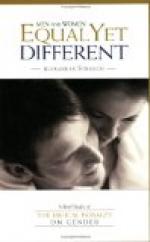The circumstance of Jacob serving Laban fourteen years for Rachel, is by some deemed a parallel case with the prevailing custom of purchasing wives among the people of the East; but the cases are not at all similar. Jacob and Rachel had met at the well where she usually watered her father’s flock. He had introduced himself to the maiden, and won her regard, before he proposed to her father for her, having spent a whole month in the house of Laban prior to his doing so. There is no reason whatever to doubt that he had Rachel’s full consent to the arrangement. It was not Jacob’s fault that, through the stratagem of Laban, he became the husband of Leah. The plurality of wives in this instance was not so much the choice of Jacob as the fault of the wily, semi-idolatrous Laban.
Shechem offered dowry to Jacob and his sons if they would consent to his taking Dinah to wife; but it is evident he did so in order to conciliate the outraged brothers of the girl whom he had so basely humbled, and whom he really desired to retain.
It is very clear, from the testimony of sacred history, that women, in the families of the patriarchs, and in the Hebrew nation generally, for several generations after the delivery of the Mosaic Law, occupied a position very much superior to those of the neighboring nations. A woman taken captive in war, whom a Jew chose to marry, could not be sold by her husband, should he afterward take a dislike to her so great that he might put her away. Even though a heathen, she was permitted to go out free.
Boaz is said to have bought Ruth when he purchased the possession of Naomi; and this circumstance is referred to by those who would bring the Bible into contempt, to prove that Ruth was bought according to Jewish law, as though she were a chattel. The facts, as given in the sacred narrative, do not, however, warrant any such interpretation.
Elimelech, with his wife and two sons, Mahlon and Chilion, left Bethlehem-Judah in consequence of a severe famine, and removed to Moab. At the time of their emigration, they were obliged to leave all their possessions, not portable, behind them; and were in consequence in straitened circumstances. While in Moab, both his sons married Moabitish women; and, in process of time, Elimelech and his sons all three died, leaving their respective widows destitute. Under these circumstances, the famine being now over in Judah, Naomi determined to return thither, and advised her daughters-in-law to return each to the house of her father. After some persuasion, the widow of Chilion did so; but Ruth, Mahlon’s widow, expressed her determination to cling to the fortunes of her mother-in-law in the following touching strain:
“Entreat me not to leave thee, or to return from following after thee; for whither thou goest I will go, and where thou lodgest I will lodge; thy people shall be my people, and thy God my God; where thou diest will I die, and there will I be buried.”




